In Kilifi, Kenya, prospering economies are built by thriving communities
Recall a moment when your community came together to support one another: exchanging resources and services, building collective resilience and trust. Most of us have experienced this in some form, at some point in time. Possibly your mind goes to a crisis or collapse in ‘normal’ life: disaster relief efforts, or pandemic lockdowns giving rise to mutual aid networks. Or, depending on where you live, perhaps you’re familiar with a rotating savings and credit association, a tontine, a stokvel, or a gift economy.
These types of exchanges are practices that communities worldwide have engaged in for millennia but which, today, often go unsupported. Will Ruddick – a development economist and founder of Kenya-based nonprofit Grassroots Economics Foundation – asks; what if organising life in this way “wasn’t the exception but the rule – a protocol deeply embedded in our communities?”
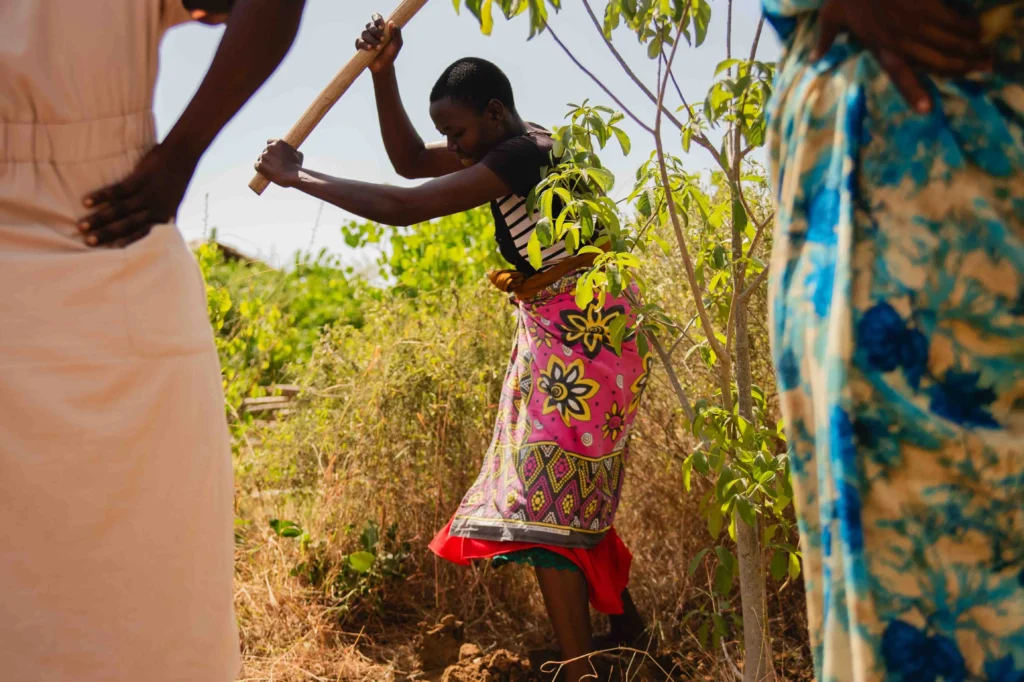
Since 2010, Grassroots Economics Foundation has partnered with communities in Kenya and internationally: supporting them in taking charge of their own livelihoods and economic futures. Their work is predicated on the concept of Community Asset Vouchers (CAVs): formalised commitments that individuals, businesses and communities can make for their goods and services. When pooled together, these assets may function – regionally or within a particular community – as a method of exchange, and ease reliance on a volatile or scarce national currency. By leveraging commitment pooling and community-driven finance, the goal is to unlock local abundance and incubate and foster resource coordination in a sustainable way.
“[Mweria] is about showing up. It’s about pooling commitments, time, strength, and presence. It’s a protocol embedded not in paperwork but in culture, memory, and care. You help me harvest today, I help you build tomorrow. No transaction, just trust.”
In simple terms: what if you don’t have money, but you have some other resource to offer: an item, a skill? Now let’s say that another person, and then another person, makes a commitment to offer other resources, and communally you all establish a relationship of value between these commitments. The more different commitments pool together into a proverbial basket, the more flexibility to meet peoples’ needs effectively: instead of exchanging A to B and B to A, suddenly there’s the possibility of trading A to B, B to C, C to A, and so on. What emerges is a resilient and cross-pollinated network of value, a pooling of resources and information: in other words, what’s called a knowledge commons.
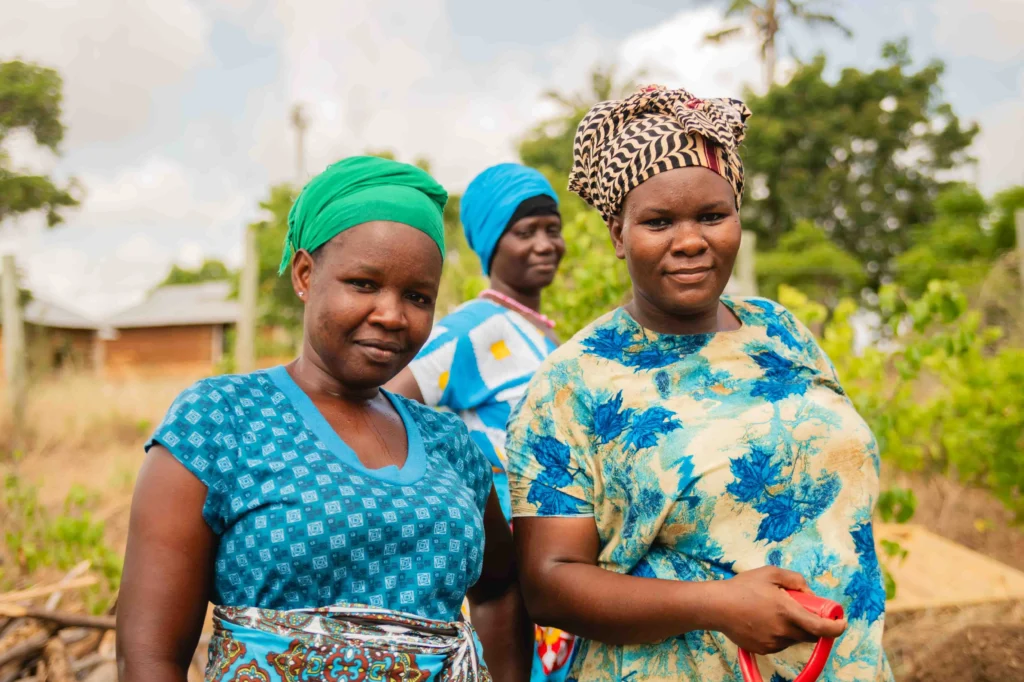
Kilifi, a coastal town just under two hours from Mombasa, has long been home to the Giriama people – one of nine groups comprising the Mijikenda Bantu group.
The foundation’s approach traces back to the Mijikenda tradition of Mweria (sometimes spelled Mwethia): a system of rotational labour and mutual aid found in many forms across Kenya, where community members take turns to support each other, pooling resources to do so. As Njambi Njoroge, Grassroots’ Director of Operations, explains, Mweria “was never just about work. It’s about showing up. It’s about pooling commitments, time, strength, and presence. It’s a protocol embedded not in paperwork but in culture, memory, and care. You help me harvest today, I help you build tomorrow. No transaction, just trust.”
Much of Grassroots’ work, Ruddick says, involves trying to understand existing social systems for reciprocal commitments, and reviving them into “something that people in cities, and people who haven’t seen these things in generations, can relate to and come back to – and also, at the same time, connect them to each other as well.”
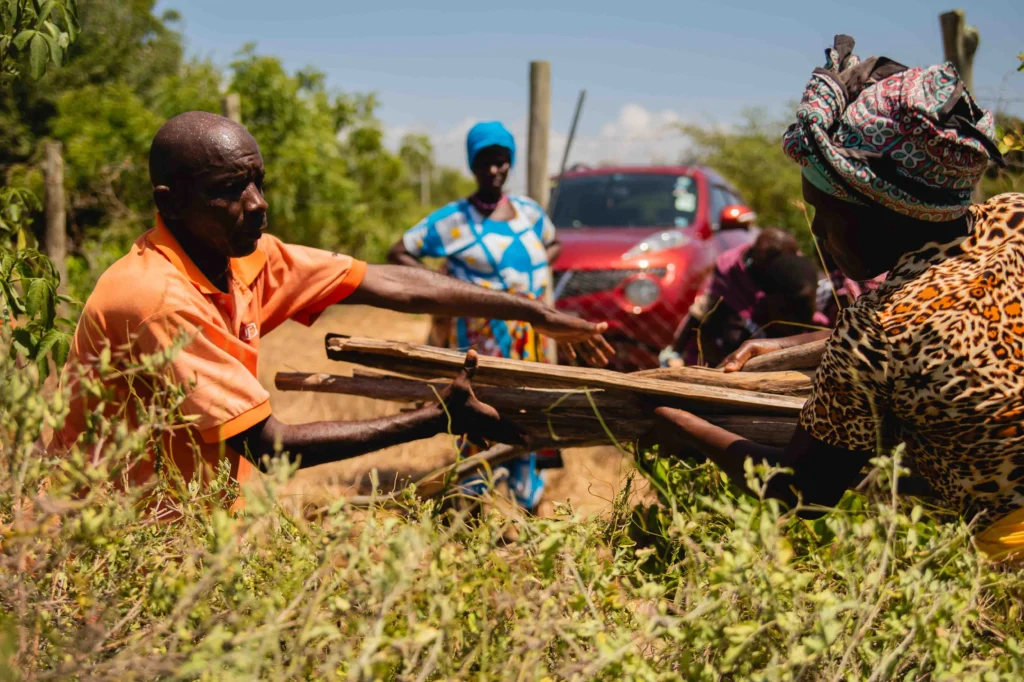
One morning, ecosystem restoration strategist Aude Péronne is conducting a training for Grassroots with a Mweria of women from the local village community.
This is commitment pooling in action. Péronne demonstrates a water retention method; this accessible skills training (and the certificate the participants will each receive for it) is her commitment. The women will continue to gather, rotating between each of their properties on alternating weeks to collectively undertake hands-on regenerative ecosystem restoration projects that need accomplishing; each of their participation is their commitment.
There are material concerns in this community: by sharing their labour and knowledge, the community can face these issues collectively.
Watching this collective exchange occur, it feels clear that this is how communities function and thrive: aiding and collaborating with one another in both implicit and tangible ways. There are material concerns in this community: food scarcity, drought and water scarcity, soil degradation and erosion. But by sharing their labour and knowledge, the community can face these issues collectively.
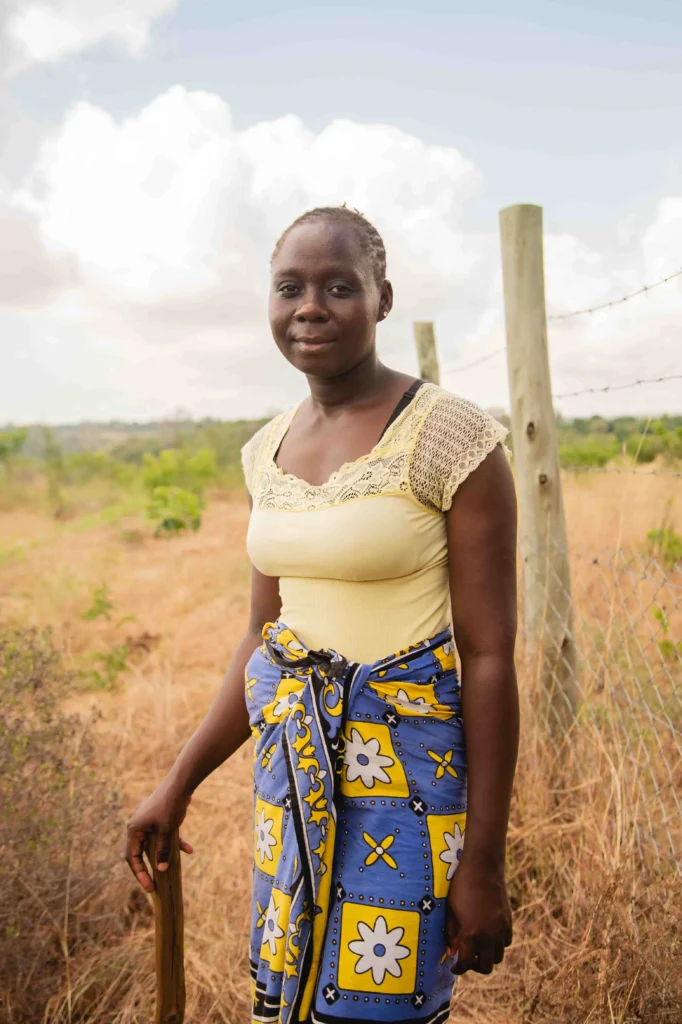
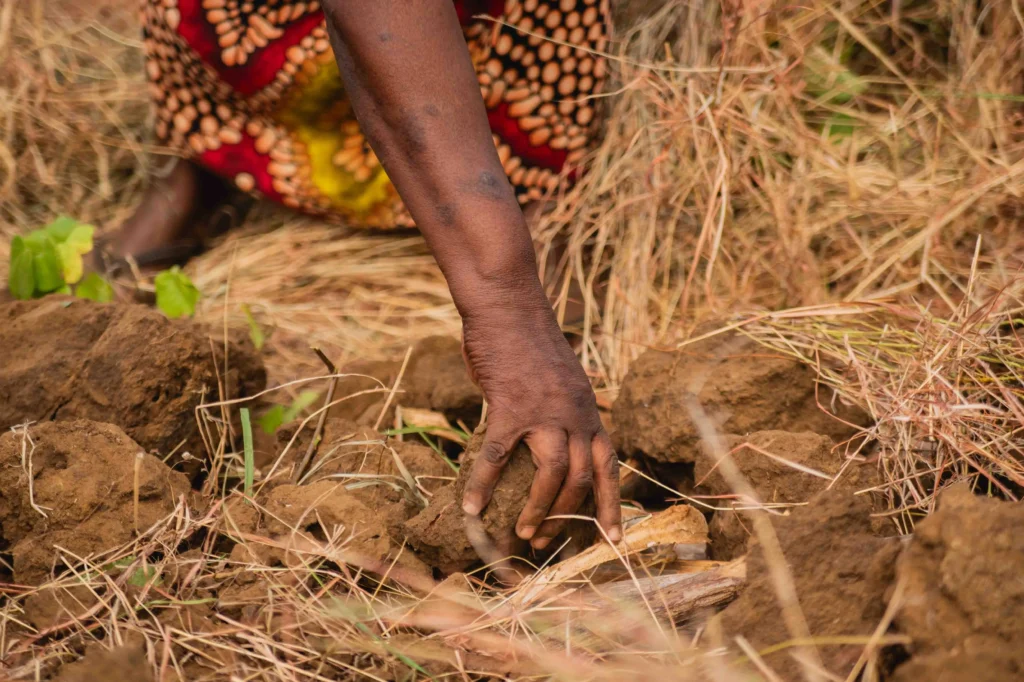
Right: Led by Aude Peronne, a Mweria of women from the local community undertake a permaculture training. 10 February 2025.
Any type of resource coordination needs stewardship: recording these various commitments and their relational values, and maintaining accountability for upholding them. Such record-keeping may come in the form of community elders – or it might look like a blockchain ledger.
Enter the idea of a Decentralised Autonomous Organisation. A DAO is an internet-native organisation, operating on a blockchain, that has a common goal, a treasury, and is operated sans central authority – instead, governed collectively by its members. As with an in-person resource coordination pool, a DAO’s decentralised structure offers an alternative to the extractivism that can plague more centralised systems.
Grassroots Economics has its own peer-to-peer digital platform, Sarafu.Network, an open-source voucher system hosted on Celo, a sustainability-focused blockchain ecosystem. Celo is designed to make decentralised finance accessible to mobile phone users – particularly useful in Kenya, which has famously leapfrogged toward mobile-based technologies.
With Sarafu – which means “currency” in Kiswahili – users create vouchers representing their future commitments, like a digital gift card for their service or product, or they certify their community achievements. It’s a digital version of Grassroots’ real-life commitment-pooling protocol.
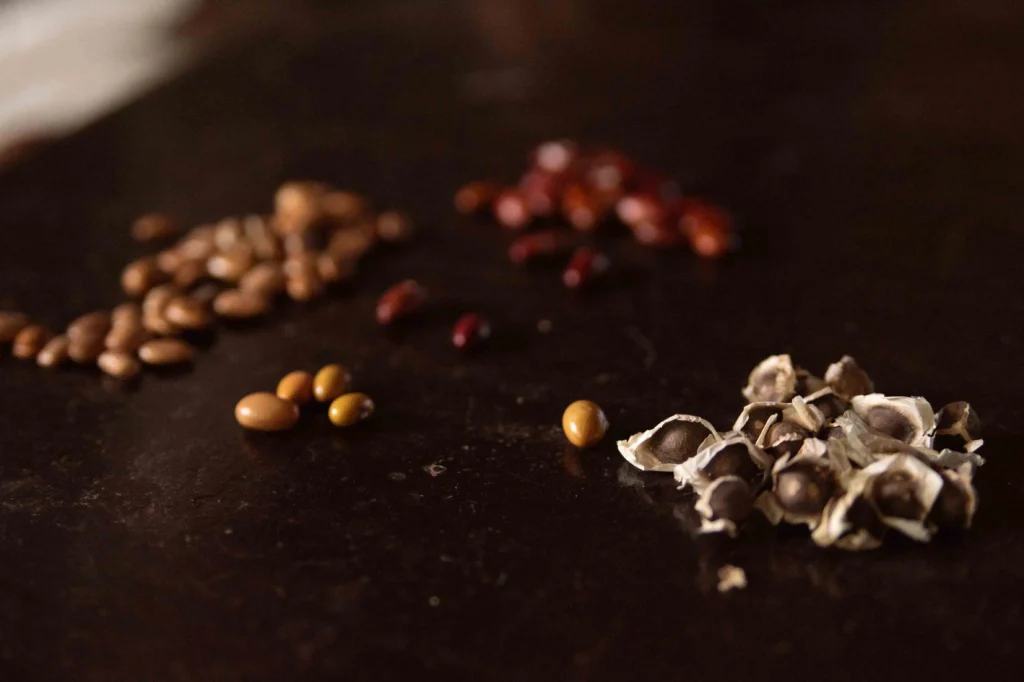
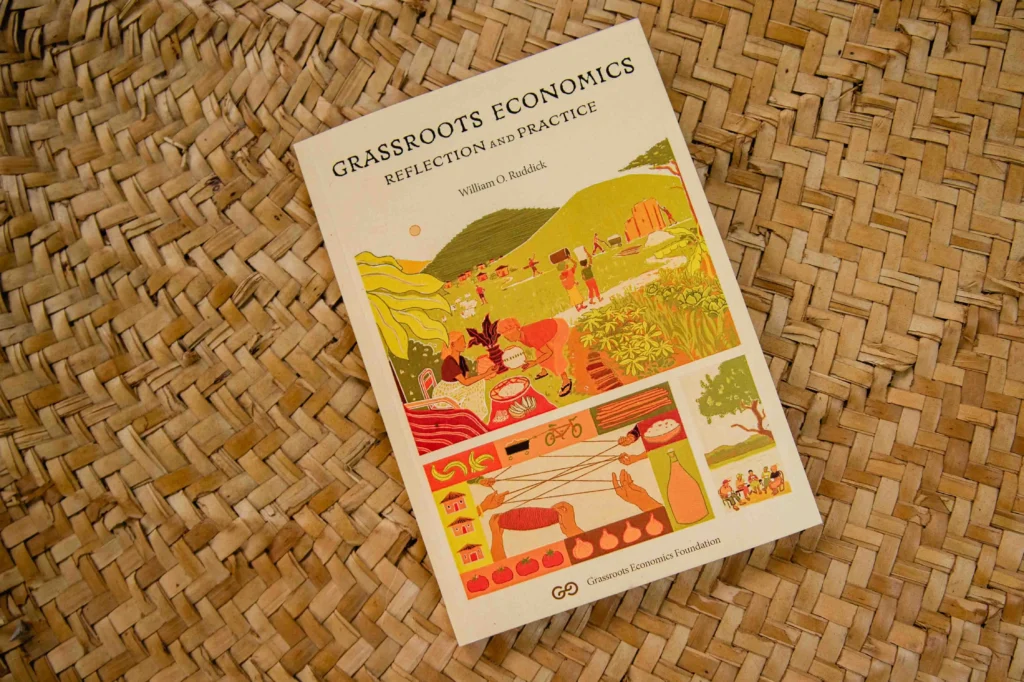
Right: Ruddick’s new book, Grassroots Economics: Reflection and Practice, is out now. 11 February 2025.
Ruddick, originally from the United States, has been living, working, and raising his family in Kenya for over 16 years. His path to this work has been an evolving one: after a degree in computer science, he enrolled in a PhD in physics. As the self-described child of “super hippies” in Santa Cruz, California, he recalls that physics offered him a framework to understand the world. An interest in econophysics led him to begin analysing foreign exchange markets, seeking to understand the concept of money as a token of commitment.
That was back in 2003. Over 20 years later, “resource coordination practices have brought me much deeper than the word money ever could,” Ruddick says. “It’s fun to see others that have resources putting that resource and responsibility into a commons and making sure that that is well-curated, that it’s valuable, the risks are limited, and that you enable flow and exchange. I think it is really life affirming for communities.”
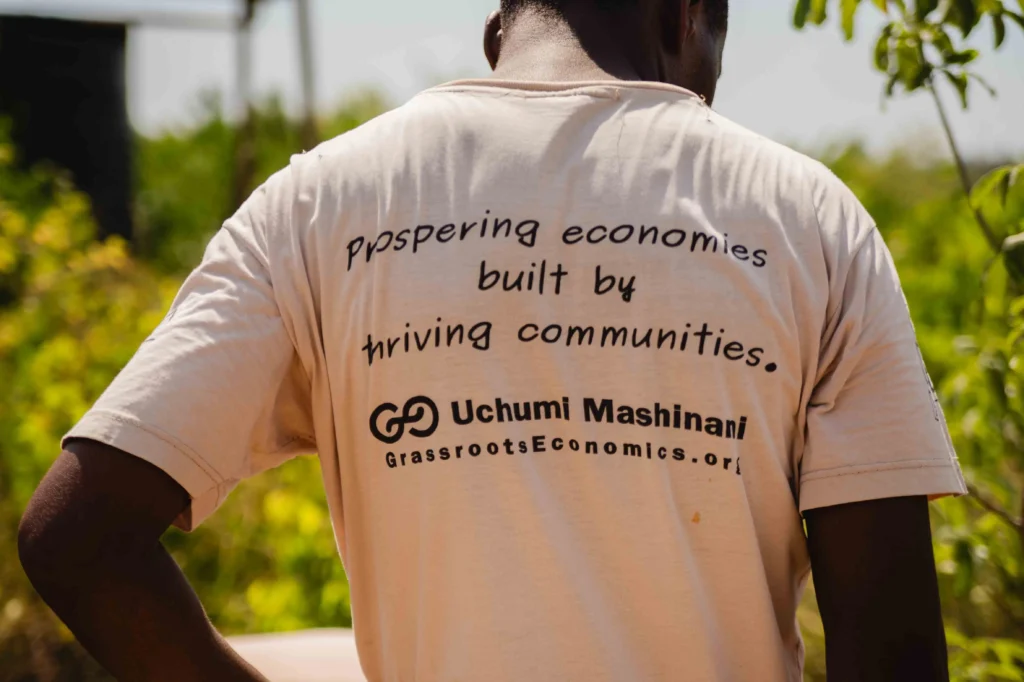
∎
Grassroots Economics: Reflection and Practice by William O. Ruddick is available now as a physical book, digital eBook (PDF), or audio book.